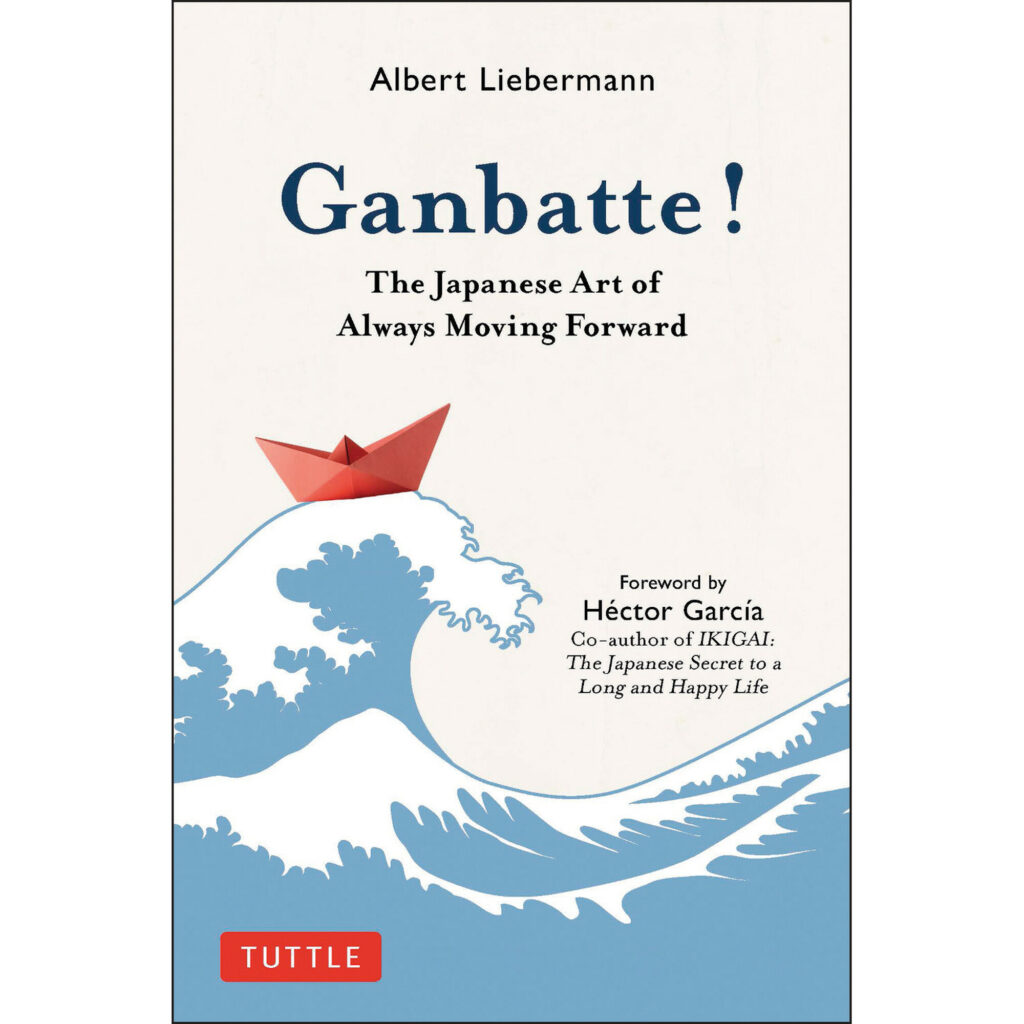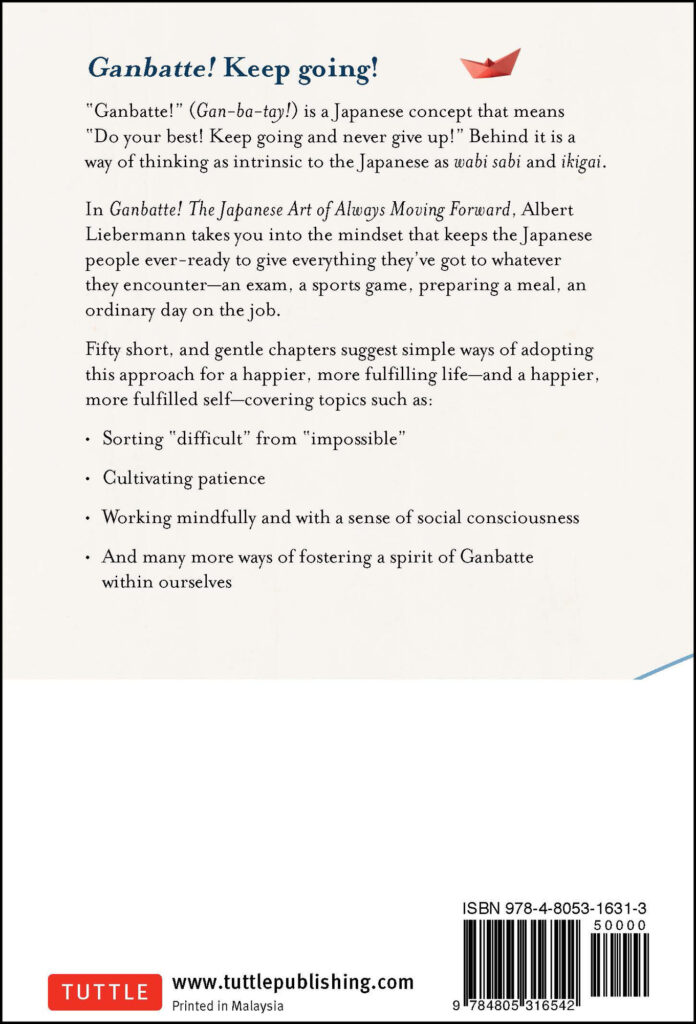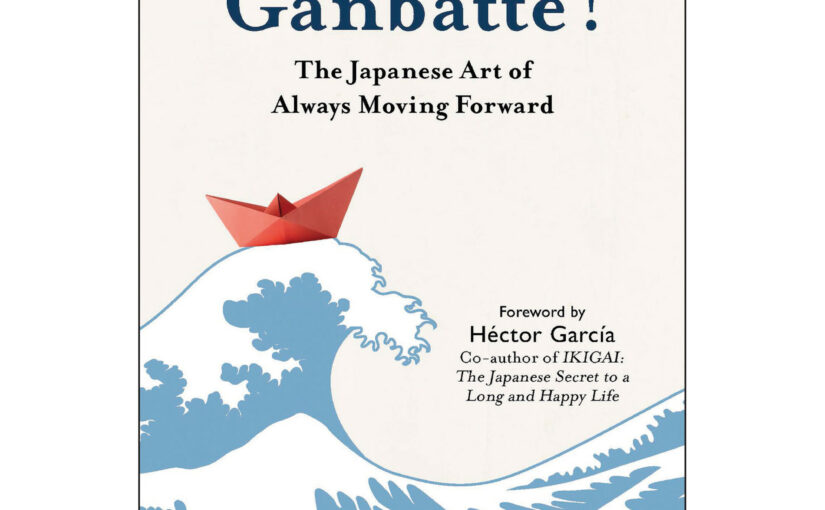Come get some. For Bruce Campbell or Joe Rogan fans, that phrase is as empowering as they come. For only three words, that phrase, to those who are down with the character Ash from the series can mean almost anything. Ganbatte is a Japanese phrase that loosely translates to ‘do your best’, but that’s where things can get lost or watered down in translation. In reality ‘ganbatte’ is an encouraging way of thinking that can power a society, and more specifically you. That phrase may be a bit too ‘chicken soup for the empowering phrase soul’, but hear me out. Even if you know nothing about Japanese language or culture, Ganbatte! The Japanese Art of Always Moving Forward is a book that upper-middle readers through senior citizens will grasp something from.
,Ganbatte! is a unique book that occupies the space in the business thought/motivational/life improvement/cultural studies shelf at the store. Western audiences can somewhat equate its meaning to some sports analogies, but “ganbatte” is much stronger, personal, powerful, and impactful.

The first time I had someone say “ganbatte” to me I was riding my bike up a mountain. I was going up the steep hill, struggling to get past a point and this guy was walking down. He saw me twisting the bike’s handlebars left and right to make the climb easier and he shook his fist in the air and yelled “ganbatte”. That was odd, I thought. However, as I would come to learn, his gesture to this foreigner cycling up the mountain is emblematic to Japan as a whole and projects an attitude that can improve anyone.
I was just off of the boat and didn’t know what that phrase meant. Some people in the office explained to me that it meant a variety of things including, keep going, try your best, or don’t give up. My thoughts then changed from ‘odd’, to “wow, that was a cool thing to say to a stranger.”

Ganbatte! gives readers a very short history of the word and how it came to be used. A more philosophical interpretation of the word is to “do everything the best that you can….and if things don’t turn out the way that you wanted don’t feel bad because you did everything that was in your power.” That is a Zen way to assure you to try your best, but don’t worry about what you can’t control. Granted, that’s easier said than done, but once you start it’s hard to go back and worry about the small things that you have no impact on.
,Keep calm and carry on, that’s a more chilled-out way to think of ganbatte. The difference is that the latter is more encouraging, whereas the former encourages you to plow on through the hard times.
Ganbatte! introduces readers to examples of people or situations where that mindset and thinking impacted its outcomes. Some of the stories weave in Greek mythology, games/competition, running a successful business, or natural disasters. After the 2011 Tohoku earthquake the slogan ‘ganbaru’, essentially “I’m going to do my best”, became a rallying cry to support those affected by the tsunami.
There are rules for entrepreneurs, fitness, writers, eastern philosophical nuggets, and real-life stories that can assist anyone in any profession. As a teacher and sometimes stay-at-home dad, I can relate to many of the snippets and try to do my best to pass them on to my students. Moreover, Ganbatte! presents the instances in short, approachable chapters. There are 50 examples and the longest one is maybe four pages long. I hesitate to call this a great bathroom book, but its chapter length is perfectly suited for that time period. The reason I hesitate is because each example is worthy of being read and if you approach it at inconsistent variables then you might miss one. How about it becomes a bathroom book after you read it all the way through?
However you read Ganbatte!, it’ll give you something of value. From a student, office worker, driver, CEO, teacher, lumberjack, barista, or whatever, it’ll give you some manner of food for thought as to how to improve your mindset.
Ganbatte! The Japanese Art of Always Moving Forward is by Albert Liebermann with forward by Hector Garcia and available on Tuttle Publishing.
There are affiliate links in this post.





 Facebook
Facebook Twitter
Twitter Flickr
Flickr GooglePlus
GooglePlus Youtube
Youtube